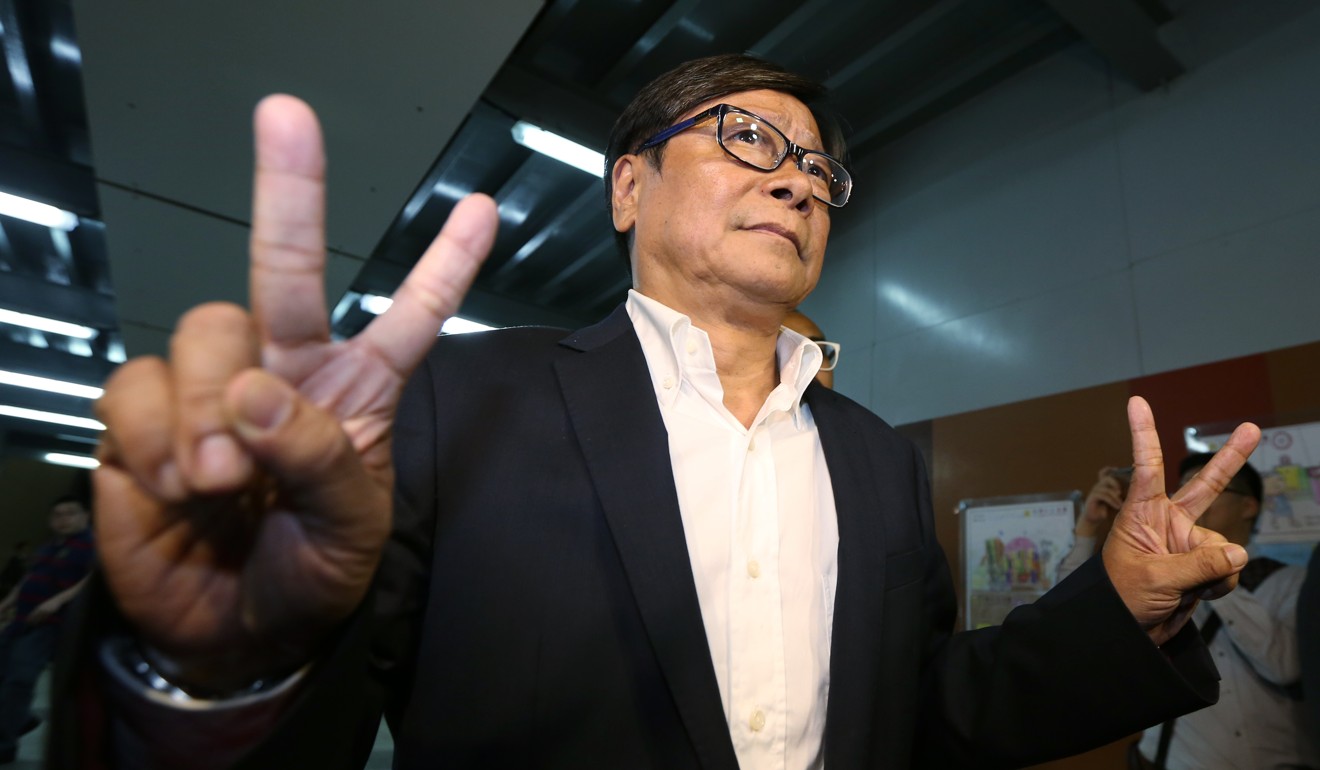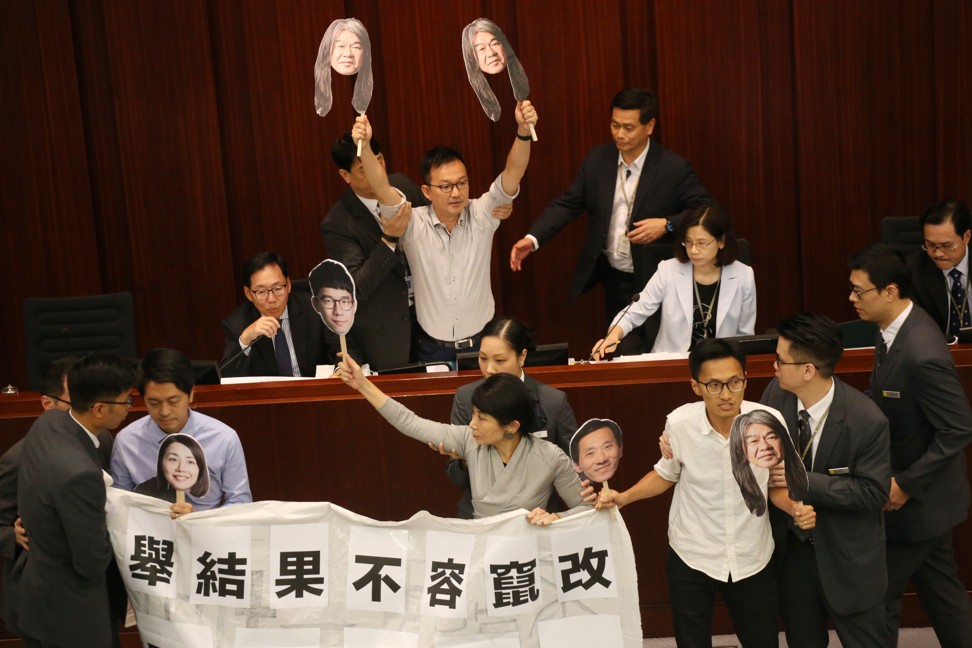
How one man’s politics of division now defines Hong Kong’s pro-democracy camp
Alice Wu says Wong Yuk-man’s provocative tactics have now become the norm, and traditional pan-democrats have no choice but to show solidarity with the radicals in a bid to survive
Many people are puzzled by the pan-democrats’ response to the four lawmakers recently disqualified for their invalid oaths. Political convenience seems more sacrosanct than legal principles.
A political genius, he was the first to realise how to make proportional representation deliver political gains by building fringe groups. Use provocative rhetoric, a vocabulary of abuse and, by being a force of division, get the most disgruntled in the community riled up. Building on that disgruntled sentiment, he found, would deliver enough votes for himself, without having the need to do the traditional groundwork of committing years and resources to district-level work.

Wong Yuk-man convicted of common assault for throwing glass at Leung Chun-ying
And true to the adage, “if you can’t beat them, join them”, the Civic Party joined Wong and other radicals in the mass resignation bid in 2010, when five legislators from five geographical constituencies resigned to trigger and take part in a by-election, to create a de facto referendum on the implementation of universal suffrage by 2012. Their effort became a sustained campaign to sideline the Democratic Party.
It is an epic tale darker than any of Shakespeare’s ... There is no loyalty, honour or allies
For voting in favour of the government’s political reform package in 2010, the Democratic Party fought Wong’s attempts to discredit them, calling them traitors to the democratic cause. Wong made distrust of the traditional pan-democratic parties his political asset. His aggression has cost the pan-democrats dearly in elections since.
And so it remains today, only it has become more complex.
The traditional democrats have no choice but to feign solidarity with the radicals, who know the winning formula of sabotage. It is not so much the impending by-elections; the moderates have to look further ahead to 2019 for the next district council elections and 2020 for the Legco election.
It is an epic tale darker than any of Shakespeare’s. “Et tu, Brute” is anticipated and expected. There is no loyalty, honour or allies. Political scavengers who exploit differences to create divisions for power grabs have made true solidarity, and hence the strength to affect real change, impossible.
The traditional pan-democrats are, for now, just trying to survive. Their biggest enemy isn’t the pro-establishment bloc. It isn’t the government. It isn’t even Beijing.
Alice Wu is a political consultant and a former associate director of the Asia Pacific Media Network at UCLA


